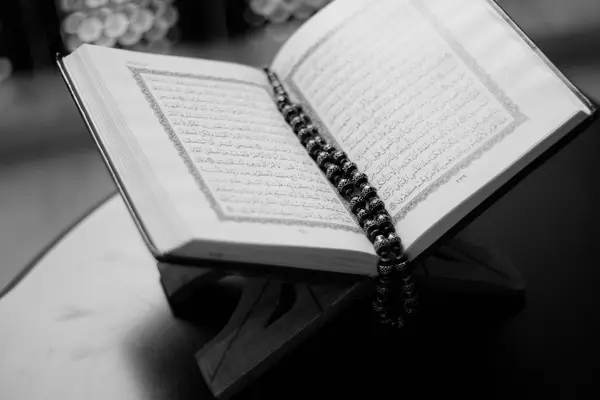
The Reality of Jinn in The Holy Quran Crédit d'image :
Publié le 29 août 2023, par Samir | 11 h 47 min
Temps de lecture : 3 minutes
As a comprehensive guide for Muslims, the Holy Quran delves into various aspects of life, including the realm of the unseen. Among the intriguing entities discussed in the Quran are the Jinn. These supernatural beings have captured the curiosity of believers and scholars alike, prompting a deeper exploration of their nature and role in Islam. In this article, we will uncover the reality of Jinn as portrayed in the Holy Quran, shedding light on their existence, characteristics, interactions with humans, and significance in Islamic teachings. The Creation of JinnThe Quran elucidates that Jinn is among Allah’s creations, formed from smokeless and scorching fire. This unique creation sets them apart from humans and angels, making them an enigmatic group with distinct attributes. The Quran mentions in Surah Rahman (55:15) that Allah created humans and Jinn to worship Him, emphasizing their accountability and purpose. Attributes and AbilitiesThe Quran provides insights into the characteristics and abilities of Jinn. Like humans, They possess free will, allowing them to choose between good and evil. Their invisibility to the human eye allows them to traverse unseen realms, making them adept at influencing human thoughts and actions. Additionally, Jinn’s ability to change forms grants them an element of mystery. Interactions with HumansThe Quran portrays various instances of Jinn interacting with humans. Some Jinn accepts Islam and follow righteous paths, while others defy Allah’s commands and commit mischief. Their interactions range from causing harm to humans through whisperings (waswas) to accepting divine guidance and embracing faith. Legends, Folklore, and RealityJinn has long been the subject of myths, folklore, and cultural narratives. However, it’s essential to distinguish between Quranic truths and fabricated tales. The Quran outlines that Jinn are accountable for their actions, just like humans, and will face judgment on the Day of Resurrection. Accepting the Quran’s guidance on Jinn ensures believers remain grounded in authentic teachings. Significance in Islamic TeachingsUnderstanding the reality of Jinn holds significance in Islamic teachings. It reminds believers of the unseen world and reinforces that humans share existence with these supernatural beings. Recognizing the existence of Jinn underlines the importance of seeking protection from their negative influences and fostering a strong connection with Allah through prayer and devotion. Delving Deeper into the Quranic NarrativeThe Quran provides numerous accounts that shed light on the interactions between Jinn and humans. One such narrative is the story of Prophet Solomon (Sulaiman) and his ability to communicate with Jinn. In Surah An-Naml (27:17-19), Prophet Solomon asks if anyone can bring him the throne of the Queen of Sheba before she arrives. A powerful and obedient Jinn offers to accomplish the task in the blink of an eye, highlighting their remarkable abilities and willingness to serve righteous leaders. Another significant interaction between Jinn and humans is exemplified in Surah Al-Jinn (72), where a group of Jinn overhears the recitation of the Quran by Prophet Muhammad (peace be upon him) and is deeply affected by its truth and beauty. This story underscores the potential impact of the Quran on both Jinn and humans, guiding them toward the path of righteousness. Protection from JinnIslamic teachings emphasize seeking refuge and protection from the negative influences of Jinn. Muslims are advised to recite specific supplications (duas) and verses from the Quran, such as Ayat al-Kursi (2:255) and the last two verses of Surah Al-Baqarah (2:285-286), to shield themselves from the harm of evil Jinn and their whisperings. These practices emphasize the importance of seeking Allah’s guidance and safeguarding oneself from unseen forces. Avoiding ExtremesWhile the Quran presents the reality of Jinn, it also warns against excessive preoccupation with them. Engaging in practices of sorcery, fortune-telling, and seeking the assistance of Jinn for harmful purposes is strongly condemned in Islam. These practices divert believers from faith and reliance on Allah’s providence. Cultural PerspectivesIt’s important to note that cultural beliefs and traditions related to Jinn can vary widely across different regions and communities. While some cultures may associate supernatural occurrences with Jinn, aligning such beliefs with the teachings of the Quran and the authentic Hadith is crucial. The Holy Quran’s insights into the reality of Jinn offer a glimpse into the unseen dimensions of the world. Their creation, attributes, interactions with humans, and significance in Islamic teachings contribute to a deeper understanding of the spiritual realm. By recognizing the Quranic portrayal of Jinn and embracing its associated teachings, believers can navigate their spiritual journey with a heightened sense of awareness and connection to Allah’s divine wisdom. |
dim. 19 Shawwal
الأحد 19 شوّال |
| Contact | Mentions légales | A propos | Ressources | Blog | Glossaire | Questions réponses sur l'islam |
| Devenir musulman - Islam et terrorisme - Se convertir à l'islam - Prénom musulman - Roqya |
| English : al hamdulillah | Arabic : الحمد الله al-hamdoulillah.com © 2024 |